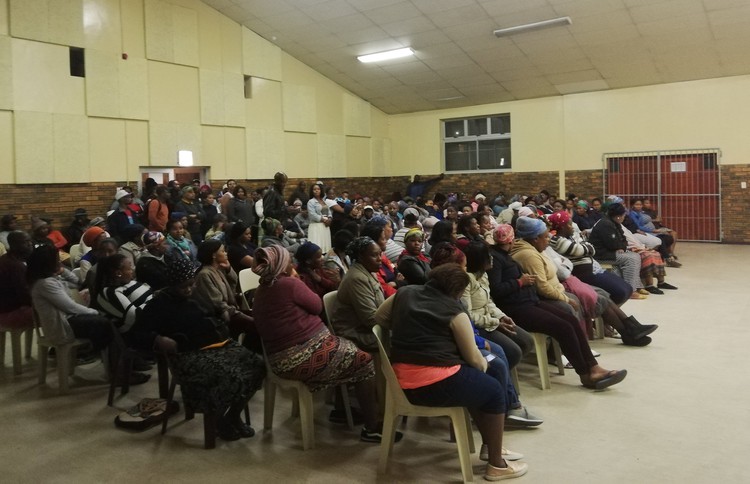One thousand new homes earmarked for Masiphumelele
City commitment to start settling people in October follows long period of community discussions
Informal settlement residents of Masiphumelele have received hopeful news. The City of Cape Town intends to relocate about 1,000 households to a temporary relocation area, starting in October.
This was confirmed at a meeting in the township’s community hall on Thursday evening. It followed a meeting between Mayco Members Malusi Booi and Felicity Purchase, as well as other City officials, with Masiphumelele’s community leaders on Wednesday.
This is the culmination of an ongoing discussions between the City and residents over the future of Erf 5131, a large and mostly unoccupied property in the township. Residents have been asking for the land to be used as a relocation area for people living on the township’s informal settlement located on a wetland, as well as for backyarders struggling to pay rent.
(See also: Masiphumelele shack dwellers threaten to occupy land if City doesn’t give dates for new houses)
Community leader Dumisani Nhlapo announced that the City has proposed to build temporary houses on the property starting on 10 October this year. He said these would be fully serviced.
Given the experience of other temporary relocation areas in the city, such as Blikkiesdorp and Wolwerivier, the new settlement may last for decades. In contrast to Blikkiesdorp and Wolwerivier, residents of Masiphumelele actually want to move to this area.
Nhlapo said that the City has been provided with a list of 1,200 names. These will be screened to ensure everyone on it is eligible (for example, previous recipients of state housing may not receive houses again).
Booi confirmed to GroundUp that community leaders have been informed of the timelines for obtaining planning approvals. “After land use approvals have been obtained later this year, the City will design and construct civil services prior to the construction of houses. Over 1,000 households could be accommodated,” he said.
Booi also said that it was agreed the site will include a community facility, including a school. “The detailed plans will be finalised once a positive environment impact assessment outcome has been obtained,” he said.
The beneficiaries are those that paid R50 to register their names to community leaders last year. The leaders said the R50 was to cover costs such as the rental of a loudhailer used to announce meetings, fuel for the car from which the announcements were made, and rental of the hall in which meetings were held, which cost R100 an hour.
“We are happy because it will mean no more rent for those who can’t afford it, and many people can move out of the bad living conditions of the wetlands informal settlement,” said Nhlapo.
Pricilla Dalingozi is a pensioner who lives with her five grandchildren and daughter in a two-room shack as a backyarder. Her daughter works piece jobs and makes about R1,500 in good months. Their rent is R800 monthly, which can go to up to R1,300 with electricity.
“Now if this happens my daughter can have a place of her own and I can have mine as well, but we can’t afford to rent two places. That is why we are seven people squashed in such a small place,” she said. “I have been a backyarder for about 15 years if not more.”
Some residents expressed scepticism. Odumo Cetywayo questioned the City’s proposal and the formation of the beneficiary list. “Let’s agree that the paying of R50 to register was wrong. It excluded those who don’t have the money, some of whom have been living in this community for years as backyarders and in the informal settlement.”
“This is a political game,” Cetywayo said. He said the City is trying to prevent protests before the elections. “They heard people saying they will occupy that land. There is no assurance that people will be moved come October.”
Support independent journalism
Donate using Payfast

Next: International tuberculosis commission praises SA government’s increased investment
Previous: Bobani must deliver on his promises to PE shack dwellers, say protesters
© 2019 GroundUp.
This article is licensed under a Creative Commons Attribution-NoDerivatives 4.0 International License.
You may republish this article, so long as you credit the authors and GroundUp, and do not change the text. Please include a link back to the original article.

